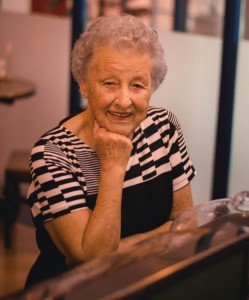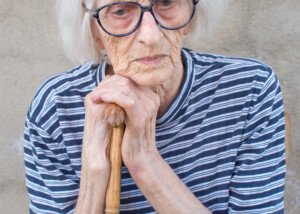
“Frailty” isn’t just a layperson term; it’s used by doctors to describe a state of body in the elderly.
“Old can look very different in different people,” begins Walter Gaman, MD, FABFM, board certified in family medicine and the author of several award-winning books including “Age to Perfection: How to Thrive to 100, Happy, Healthy, and Wise.”
Dr. Gaman explains, “Some people are able to ski down a mountain or dance the tango at 70, while others may be at risk for injury or simply lack the energy and muscle mass to do anything outside of casual walking.
“Frail elderly refers to people over the age of 65 who are dependent on the help of others or have serious health concerns or risks.
“Frailty is a medical condition that may or may not be reversible. Some elderly become frail due to an illness, injury or disease. The nature of such determines their prognosis.
“For example, if an elderly person becomes frail from bedrest after surgery, once healed they may gain their strength back. Same is true with non-chronic illnesses.
“When an elderly person is considered frail, they may need assisted living or even 24 hour nursing care.”

A variety of frailty scores has been developed to access the condition of “frailty” in the elderly.
The Frailty Score
Dr. Gloria Aguayo (Luxembourg Institute of Health) and her colleagues examined the predictive ability, as far as mortality, of 35 frailty scores for cancer, cardiovascular disease and all-cause mortality.
The data came from the English Longitudinal Study of Ageing.
All Frailty Scores Are Linked to Future Death
Dr. Aguayo’s study (PLUS One, April 2018) involved analyzing data from 5,294 senior age adults who were followed up over a time period of seven years.
• All frailty scores were associated with all-cause death.
• Some were tied to cardiovascular disease.
• None were linked to cancer.
“Frailty is often the precursor to a more serious injury or illness that eventually leads to death,” says Dr. Gaman.
“This is why adults should have good nutrition and proper exercise, including muscle strengthening. Strong, limber and healthy adults are much more likely to bounce back from an illness or injury.”
A senior person who’s very frail may be in denial and believe they’re still as sturdy as a horse.
Even if this person is frequently short of breath and tires very easily, they may still tell family members, “I feel fine!”
Observe if they tire easily when walking around a store or doing light housework.
- Must they nap frequently or take frequent timeouts in a chair to catch their breath?
- Is walking a major challenge for them? But then again, an older person with painful knees may still have a pretty decent heart and kidneys.
Hopefully, you can convince your elderly family member to let you in on their medical care so that you can ask their physicians specific questions.
Frailty is a medical condition that, for some, is truly reversible.

Dr. Gaman is with Executive Medicine of Texas and is with the Staying Young Radio Show 2.0 podcast.
 Lorra Garrick has been covering medical, fitness and cybersecurity topics for many years, having written thousands of articles for print magazines and websites, including as a ghostwriter. She’s also a former ACE-certified personal trainer.
Lorra Garrick has been covering medical, fitness and cybersecurity topics for many years, having written thousands of articles for print magazines and websites, including as a ghostwriter. She’s also a former ACE-certified personal trainer.
.

























